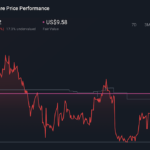AUSTERLITZ, The Netherlands — “I’m curious, how were people feeling and what were they doing the day before the Second World War?”
I thought about it for a moment. “Well, I don’t know,” I told my friend. “Probably, the same as us.”
We finished the dinner and took a walk around Kyiv city center, my beloved home in north-central Ukraine. We sat in a small cafe to drink cappuccinos and gossip.
I went home early, feeling a wave of anxiety.
For the month leading up to Russia’s invasion of Ukraine on Feb. 24 everyone was talking about the potential threat from Russia, but nobody could believe it would really happen.
I didn’t fall asleep until 2 a.m. I was working on my laptop, and checking the news. Just as some animals can feel a tsunami coming, I felt like nothing would ever be the same again.
Early the next morning, I was lying in bed in complete darkness. I turned on my phone, as I always do, but this time with more trepidation. The news declared: “Putin Invades Ukraine.”
I was paralyzed, not by fear, but by the surrealness of the moment.
My group chat, “Kyiv Breakfast Club,” was bursting with messages: “What’s the plan?” Some people were even able to make jokes to lighten the mood. That may seem odd to others, but our situation still didn’t seem real.
“‘The train arrived late. There were no signs of chaos or panic yet, even though all carriages were full, and some people were riding without tickets. I hugged my mom. Seeing her was a huge relief. ‘”
And then we heard explosions all around the city. We weren’t going crazy. They were the sound of bombs.
My mom was still offline, so I decided to give her a couple more hours of peaceful rest in my native city, Kryviy Rih, in Central Ukraine.
I used the time to book all the railway tickets that I could find, giving us several options. We were leaving, but the question was when — and to where.
When we finally spoke around 7 a.m. on Feb. 24, I heard sounds on my mother’s end. They too were explosions.
My mother refused to take a train ride to join me and travel west, so I booked one more train ticket to go to Kryvyi Rih and pick her up.
The train arrived late. There were no signs of chaos or panic yet, even though all carriages were full, and some people were riding without tickets.
I hugged my mom. Seeing her was a huge relief.
Over the next few days there was an eerie calm. During the day, we collected supplies for Ukraine’s territorial defense forces. In the evening, we met friends. My mom refused to leave her comfort zone, and her house in Kriviy Rih.
On the fifth day, March 1, we were told a huge military convoy was moving very close to the city.
That was it. My friend miraculously found two tickets for the train to Uzhgorod. My mother and I packed in 20 minutes and called a taxi, shortly before the sirens sounded across the city.
After waiting for four hours at the train station, we weaved through thousands of other panicking passengers, almost losing each other on that snowy night.
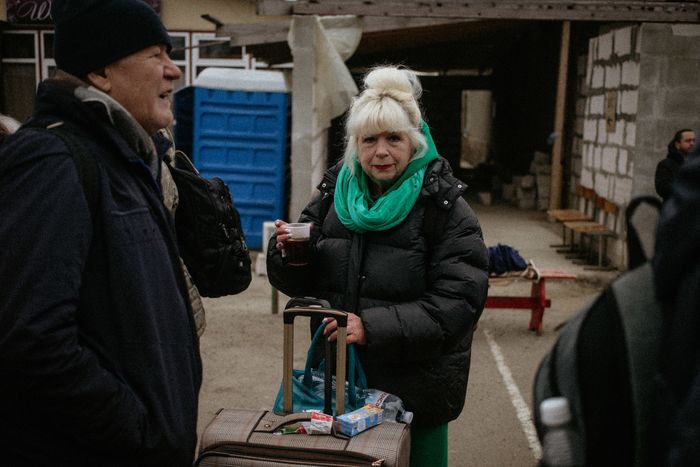
‘My mother refused to take a train ride to join me and travel west, so I booked one more train ticket to go to Kryvyi Rih, and pick her up.’
hanna hrabarska
Calm and quiet in Uzhgorod
On the train to Uzhgorod, I took out my camera and took some shots of my mom. It distracted me from reading the news 24/7.
We ended up in a cozy coupe with a locked door, and arrived at Uzhgorod, a city close to the western border with Slovakia, after 24 hours.
It was calm and quiet in Uzhgorod and, for a moment, I thought we should just stay there and wait, because some of my friends from Kyiv were there too, hiding from the war in what felt like a warm nest of the western Ukraine.
On one occasion, we went for lunch with my friend Katerina, a cultural manager. Sitting in a nice restaurant, she and I shared my worries about leaving the country. I knew we had to leave.
The next morning, we crossed the Slovakian border by bus to the village of Veľké Slemence, a town known as the “divided village,” as it was split between Slovakia and Ukraine (Mali Selmentsi) when my country was occupied by the Soviet Union after World War II.
The moment I traveled through that town and crossed that border, I became a refugee.
“‘I looked out of the window in tears. I felt swallowed by a terrible sadness. The landscape didn’t change much — the same gray and rainy morning. But it was not Ukrainian land anymore. ‘”
I looked out of the window in tears. I felt swallowed by a terrible sadness. The landscape didn’t change much — the same gray and rainy morning. But it was not Ukrainian land anymore.
We took a bus to Košice in eastern Slovakia, and then a train across the southern border to Budapest, the capital of Hungary.
Could I have foreseen this nightmare when U.S. President Joe Biden warned of the attack, when the U.S. embassy evacuated their employees from Kyiv, or when other embassies did the same?
Could I have imagined this when everyone was talking, thinking and dreaming about a Russian invasion, or when people were discussing what to put in their “emergency backpacks” on social media?
Hell, no!
I used to say: “You must be crazy to think that they would bomb Kyiv.” But they were not crazy. No one was crazy, except Russian President Vladimir Putin.
I had to leave my home twice in the course of a week: my lovely flat in Kyiv — for which I saved for over 10 years to buy — and my parents’ house where I was born and lived until I was 22, and where I returned to every month to visit my mom.
I left my country as a confident, successful and beautiful young woman who was living the life of her dreams, but crossing the border I became a “war refugee,” a label I will carry until the moment when I can go back home.
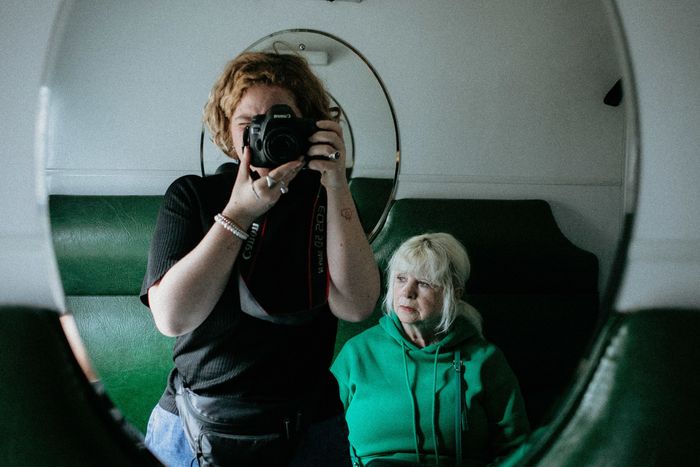
‘We ended up in a cozy coupe with a locked door, and arrived at Uzhgorod, a city close to the western border with Slovakia, after 24 hours.’
hanna hrabarska
A temporary home in Budapest
In Budapest, my friends picked us up from the station to drive us to our first temporary home.
Peter and Eva — our Hungarian hosts — live in a huge apartment in a museum district. They made us feel at home immediately.
We spent a week with Peter and Eva. We took this time to finally exhale. I thought about the next chapter of my life, and how to start it properly.
My sleeping and eating schedule was ruined completely. I lost 11 pounds during our escape from the war in Ukraine. I could only switch off for a couple hours a day.
“‘For a second, I forgot about what was going on in my country, and I felt like a normal tourist. The silence of the city was similar to the silence of Kyiv the morning before the first bomb was dropped.‘”
On my fourth day in Budapest, I noticed how charming this city is, one of the most beautiful I have ever been.
Walking home at 10 p.m., the street was empty. I stood up and listened to the silence. I was troubled only by my own voice buzzing in my head.
I looked at the flag of another country, blowing in the wind. For a second, I forgot about what was going on in my country, and I felt like a normal tourist.
The silence of the city was similar to the silence of Kyiv the morning before the first bomb was dropped.
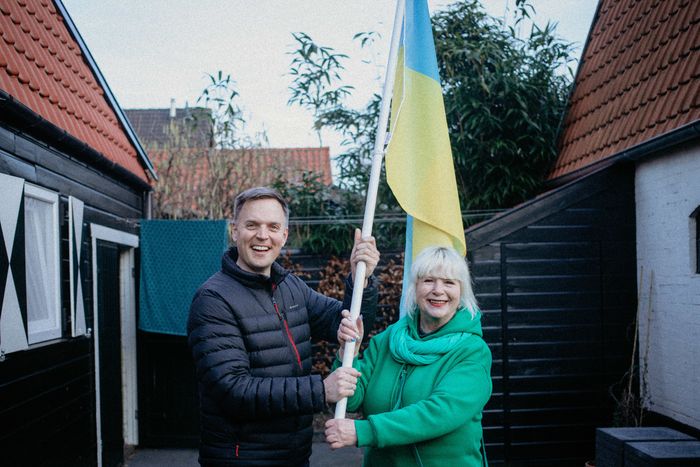
‘What I can do is to pull myself together, which I have already done, and do everything to restore a sense of normalcy to my life.’ (PIctured: The author’s mother and a friend.)
hanna hrabarska
A safe place in the Netherlands
After a week we made our way to the Netherlands, to an idyllic village of Austerlitz in Utrecht province, where the only sound you wake to is a bird’s song.
We will stay here for a while in a house owned by my friends, surrounded by forests and flowers.
What I have realized since the war started: I don’t want the war to be a central event in my life. I don’t have a right to let it become so.
Many people tend to stick to tragedies, and grow their life from a grain of trauma. I don’t.
Maybe that’s why It’s so hard for me to associate myself with that label “war refugee.” I refuse to see myself as a victim.
War is a tragedy. I lost my material possessions, my home, my career, and my community.
But the most precious things — my life and my personhood — remain unchanged.
“‘My desire to live my life in a happy and joyful way increased dramatically. I want to keep being who I am — and I will not allow anyone to take it away from me.’”
Every disaster is just a circumstance, as long as you are alive. My responsibility is to stay safe, sane and rebuild everything I loved about my life in Ukraine.
A few days ago I met a Dutch guy at a charity techno party. He spent three years in Kyiv as a diplomat. He got his first tattoo recently — a contour image of a Motherland monument, very much loved by foreign tourists.
“I am so ashamed,” he said. “I feel so guilty! Instead of just hanging out and enjoying Kyiv, as all expats do, I should have predicted the possibility of invasion!”
Sitting on the floor of the club, he put his head in his hands.
I wanted to say that it’s not my job to babysit other Europeans, and help them to overcome their trauma. But I tried to calm him down.
We talked for two hours about the past and the future, and I came to the conclusion that my home is where my aroma diffuser is. This is the one thing that I packed before leaving — along with four pieces of cloth, my camera and a laptop.
We laughed and left the party as friends.
“‘It’s easy to fall into a rabbit hole of self-doubt after someone questions your right to exist. I don’t think I will ever feel 100% safe again after my city was bombed for literally no reason.’”
We don’t know when and how the war will finish. Just like we didn’t know if Russia would attack Ukraine or not. But it did.
I am very lucky to be in a safe place with my mom, surrounded by friends and being able to think about the future. It’s totally OK to miss home, and it’s totally OK to keep going.
As a Ukrainian, who managed to escape from war, I keep living my life and building my career. It is not only my right, it’s my obligation.
Putin’s aim is to break us, and destroy our sense of freedom. By demolishing our homes, he wants to kill our lust for life.
It’s easy to fall into a rabbit hole of self-doubt after someone questions your right to exist. I don’t think I will ever feel 100% safe again.
My city and my country was, after all, bombed for no reason. Putin has tried to erase my country from the surface of the planet.
I hate and blame Russia for what they have done. But I know for sure that Russia will not solve my problems.
What I can do is to pull myself together, which I have already done, and restore a sense of normalcy to my life.
Like many Ukrainians, the war has actually sharpened my sense of self.
My desire to live my life in a happy and joyful way has increased dramatically. I will keep being who I am. I will not allow anything or anyone to take that away from me.
Hanna Hrabarska is a Ukrainian photographer now based in The Netherlands.
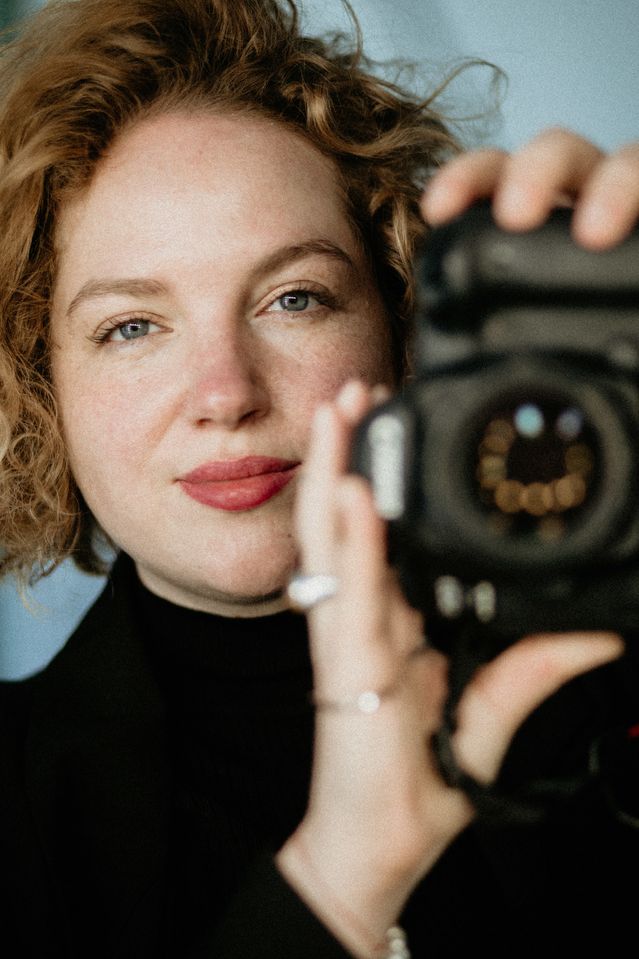
Self-portrait by the author.
hanna hrabarska


